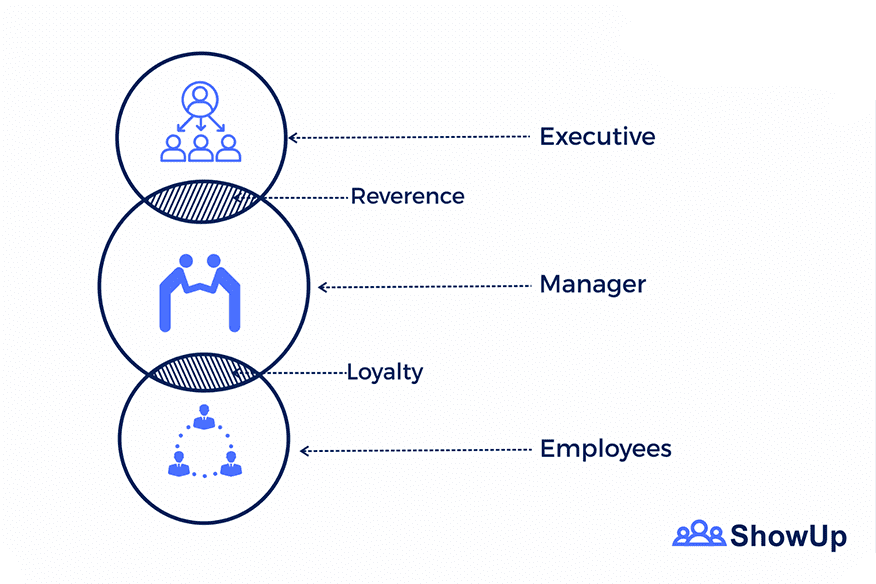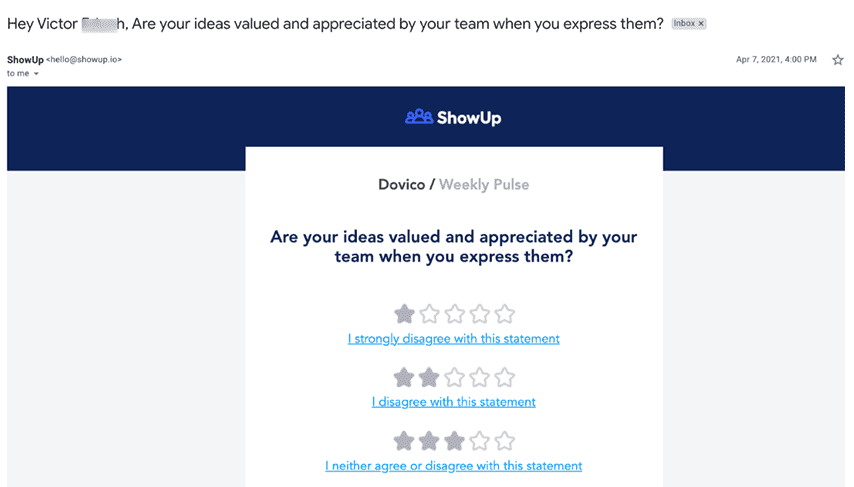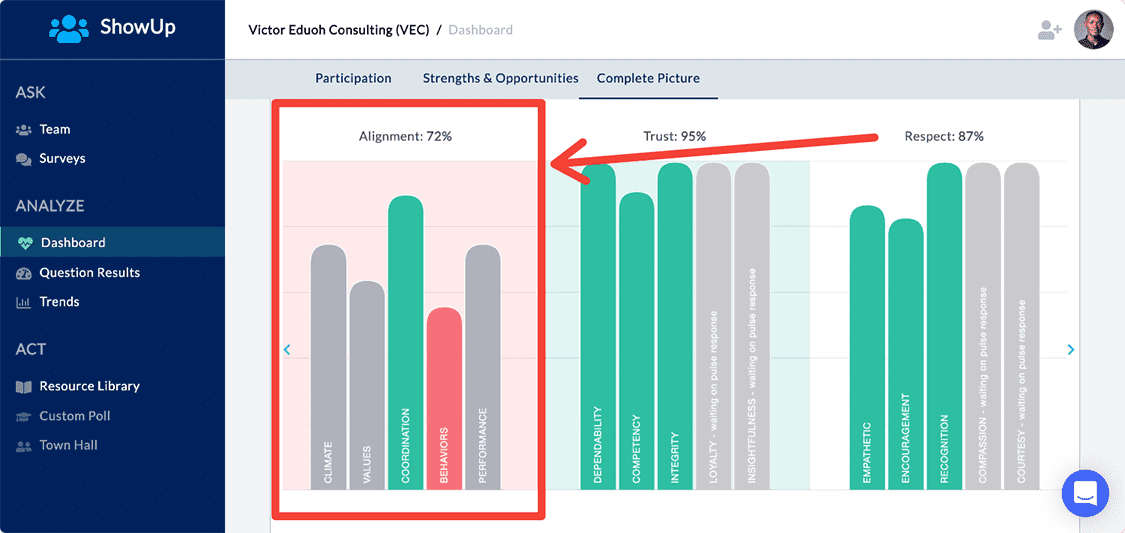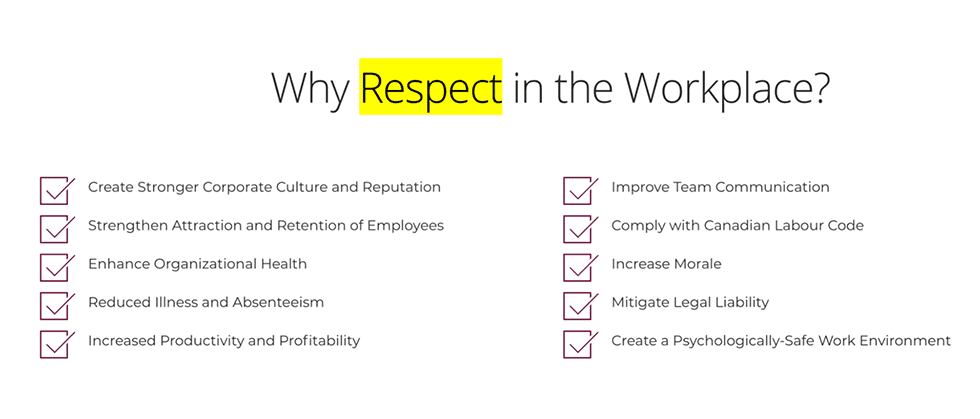Here are 4 Ways Managers Demonstrate Respect in the Workplace
Growing up, we all learned or heard someone saying it, but have you ever wondered what really makes respect reciprocal?
I’ll tell you.
It’s because respect and value are synonymous. The level of respect you ascribe to employees is directly related to the value you’ll command as their manager. In other words, the more you show respect in the workplace by respecting yourself and your employees, the more value they’ll have for you.
Johnny Duncan, a Senior Research Analyst at Best Practice Institute, shared what managers can expect by showing respect to employees.
When a manager respects his or her employees, there is no room for harassment, favoritism, or bullying. In a respectful environment, relationship building and strengthening can be better understood as the foundation of quality work.
Since you’re still here, I can assume you know that by showing respect to employees, you can get them to perform better.
If my assumption is correct, then you’re in the right place.
Because this guide will walk you through four ways to build a more respectful workplace environment. Specifically, you’ll see how to do it by giving employees a voice via automated team pulse surveys.
Table of Contents:
Before we dive in, a quick take on what respect does for managers.
By earning continuous respect from co-workers, you’ll build greater levels of trust within your company. David Grossman, Leadership and Communications Expert, say leaders can achieve this by:
Working hard to win over people by being respectful of their ideas and perspectives.
But the question is: How can managers earn trust by respecting employees' ideas and perspectives, as recommended by Grossman?
As a manager, you can do this regularly by asking employees how they feel about ideas they shared with you. Unfortunately, most managers relegate this crucial task to the backseat and often forget to do it at all.
And that’s why using weekly or bi-weekly pulse surveys to automate this task make sense for a busy manager like you:

Give Employees a Voice.
Get Insights to Build a More Respectful Workplace Environment.
Navigating Being Respectful In Our Modern Workplace
Today’s work environment is more complex than ever.
Increasingly, our workplaces are now a mix of global talents from different generations and social norms. And the ways they all interpret respect differ. As such, managers need stronger inter-people skills to navigate these varying and ever-changing co-worker relationships.
The US Chamber of Commerce Foundation gives us insights on navigating today’s complex workplace.
In its report, people born in the Baby Boomer generation expect respect for anyone seen as an ‘elder.’ But for Millennials and those below, respect is more likely characterized as a two-way action earned through behaviors.
The bottom line the report found is that “respect is a value of all generations.”
However, it also highlighted the need to respect each individual on your team based on how they perceive it. And this could be through the lens of their generation or social norm. As a manager, you may be thinking: Doesn’t all these complicate being respectful to co-workers further?
Well, it does.
But the good news is you can navigate the complexities of being respectful to everyone by approaching it in two ways: Hierarchy-focused and Connection-focused, as observed by Jessica Hady in a Forbes article.
In the article, Jessica advised managers, saying:
If someone needs to feel superior, keep all communication exceedingly professional. Address them by their title, if that’s a source of their personal authority. Keep them informed, and appeal to their ego periodically to prevent them from feeling slighted.
And for the Connection-focused folks, which are most likely the employees you manage, she said:
If someone needs to be included, make sure they’re a part of the social ecosystem of the team. Keep communication open and casual, and bring up topics beyond the scope of the job. Give them honest appraisals, and make sure they feel involved.
When approached this way…
Respect can help you foster reverence from executives in authority. And loyalty from the fruitful collaboration with employees:

The result of putting respect at the center of your organization is profound, according to Senior Forbes Contributor & Co-founder of Calender, John Hall.
When you prioritize respect as a company value, you may be surprised by how quickly your team grows stronger and overall performance improves. Employees who feel respected are more likely to pass it on to others and less likely to engage in negative behaviors.
What Does Respect Look Like In the Workplace?
First, let’s define what it means to demonstrate respect in the workplace.
And no better place to turn than Ron McMillan’s Crucial Conversations Bestseller. In this book, a frequently quoted line depicts what respect looks like in the workplace.
It goes:
Respect is like air. As long as it is present, nobody thinks about it. But if you take it away, it’s all that people can think about.
In other words, never undermine the importance of showing respect in your workplace. Because when it’s not there, negative feelings build up among teammates, leading to lower productivity levels.
Here are some more reasons you should prioritize respect as a manager:
Respect Increases Trust Among Coworkers
Showing respect to everyone in your workplace, irrespective of their position on the corporate ladder builds trust in the workplace. No one should even remind you of how vital trust is to your relationship with co-workers.
But if you insist, here’s what Leadership Coach, Brian Tracy, says about it:
The glue that holds all relationships together, including the relationship between the leader and the led, is trust, and trust is based on integrity.
Here’s another reason why you should take this seriously.
Researchers have found that when you respect employees and increase trust in your company, you, the manager, and everyone else can experience 74% less stress.
Respect Boosts Collaboration & Productivity
Employees can go above and beyond if treated with respect.
When you respect coworkers, you’ll seek and value their help and ideas when working on projects. Knowing you’ll respect their contributions unlocks their creativity to go the extra mile for you, their manager.
The result of this is better collaboration and effective productivity, a must-have for all growth-focused teams or companies.
Respect Improves Job Satisfaction & Employee Engagement
Respect is also vital to job satisfaction and improving employee engagement.
To prove this, Dr. Paul Marciano used a century’s worth of research to develop a leadership model called RESPECT. This model demonstrated how employee engagement depends on showing respect.
This report by Kudos said this of Dr. Paul’s study:
Employee engagement depends on the extent to which an employee respects and feels respected by the organization, their leader, team members, and their work.
Now before I show you four ways managers respect employees…
It’s critical to note that showing respect to employees isn’t a one-time activity. As Ron McMillan observed, respect is like air. Even when coworkers seem not to ask for it, it must always be there for your work environment to thrive.
This brings us back to a question I asked earlier: What’s the best way for managers to show respect regularly, even when people forget to ask?
You can do this by automating weekly or bi-weekly team pulse surveys:
How Team Pulse Surveys Help Managers Show Respect In the Workplace
If you agree with Ron that respect is like air, don’t wait for employees to ask before giving it to them. Because by the time they do, they’re either choking your workflow with excuses or no-shows. Or they’re trying to jump ship.
Team pulse surveys help you avoid these by…
Well, helping you keep a pulse on your team weekly or bi-weekly, even if you forget. For instance, a way to show respect for employees is to discuss changes before implementing those changes, even though you’re the manager.
And that’s a tedious task team pulse survey software can automate for you:

ShowUp even does more than automating surveys to your employees, so they can feel the respect you have for them.
It collates their responses, crunches the data, and shows areas to focus more on via its clean dashboard. This dashboard below, for instance, showed the manager should focus on aligning more with employees:

Give Employees a Voice.
Get Insights to Build a More Respectful Workplace Environment.
4 Ways Managers Show Employees Respect in the Workplace
Showing respect to employees in your workplace is a way of letting them know you appreciate their efforts.
And doing this yields a better workplace culture, thereby creating an environment that encourages employees to work to their fullest potential.
Here are five ways you can show respect in the workplace, as a manager.
1. Recognize & Appreciate Employees’ Contributions
Let’s turn for the second time to John Hall, a Senior Forbes Contributor.
John also Co-founded Calendar, where he manages many employees and understands that recognizing and appreciating employees is an excellent way for managers to show them respect.
In his article published on Forbes, John said:
Any business that does not promote an environment of mutual respect is simply asking for employee turnover. A consistent lack of appreciation and common courtesy is sure to keep your HR team busy managing a revolving door of new hires and disgruntled exits.
In other words, if you don’t want to keep losing the best talent on your team, show respect always by recognizing and appreciating their contributions.
2. Practice Politeness and Courtesy
Everyone makes mistakes. No one is perfect.
As a manager, you can’t stop employees from making more mistakes by being harsh or hostile. But you can by being polite and courteous. Politeness and courtesy are a way of showing respect to your employees, even when things go wrong, or you think they’re undeserving.
As Maya Angelou rightly said:
People will forget what you said, people will forget what you did, but people will never forget how you made them feel.
A little bit of politeness and small acts of courtesy like saying hello can make employees feel good because it shows you respect them, no matter what.
And employees feeling good can lead to higher productivity.
3. Give Employees a Voice
Nadia Ponomareva is the Head of Recruitment at New Horizons Global Partners. In one of her thought leadership pieces, Nadia said:
Whilst many of us view respect differently, we should nevertheless strive to treat people as they would like to be treated. By taking the time to listen to one another’s perspectives, we can foster a more collaborative and cohesive work environment.
Here’s what Nadia means.
The employees you manage all have different ways of interpreting respect. Since you can’t enforce your view of ‘respect’ on them, it’s best to listen by giving them a voice to share their perspectives.
Doing this is a sincere way of showing respect, according to Bryant McGill:
One of the most sincere forms of respect is listening to what another has to say.
But the challenge is: How do you give everyone a voice and make sense of all they have to share if you manage, say, 15 employees or more?
Again, this is where team pulse survey software can help.
You can show your respect for employees by simplifying the process of asking about their perspectives. For instance, look at the pulse survey sent directly to employees’ inboxes below.
The manager at VEC, a SaaS storytelling agency, showed respect by using this survey to let coworkers share how they felt about their shared ideas:

4. Act on What Employees Have to Say
It’s one thing to show respect by giving employees a voice to share their perspectives. But the real act of respect comes when you take action on what they have shared with you.
Action, they say, speaks louder than words.
But you can’t take action if you don’t know what to act on, which is another reason to leverage a team pulse survey tool like ShowUp.
After helping you give employees a voice to share their perspectives via its automated surveys sent weekly or bi-weekly, ShowUp compiles the data into a dashboard, showing you what to focus on:

But it doesn’t end there.
Based on the weak areas highlighted, you also get psychology-backed resources highlighted from its library for you to start taking action:

Conclusion: Demonstrate Respect In the Workplace with Pulse Surveys
Employees rate respect highly.
Research conducted by SHRM confirmed this. In the study, a whopping 72% of employees rated being treated respectfully by managers as ‘very important’ and a significant contributor to their job satisfaction.
Furthermore, when Georgetown University polled over 20,000 employees in 2018, the same pattern emerged. In the survey, employees rated respect as the No.1 leadership trait they expected of their managers.
All these make sense when you look at why respect is vital in the workplace:

[source]
As this screenshot shows, showing respect to employees cuts across different traits like compassion, courtesy, empathy, recognition, and others.
Unfortunately, managers (like you) wear many hats. So being respectful in these areas at once may be out of your reach. And this is understandable.
But with team pulse survey software like ShowUp, you can have automated surveys questions on each respect trait sent to your employees:

Weekly or bi-weekly, the results of these surveys get compiled in your dashboard. And from a glance, you can see areas related to respect your employees think you should improve on.
According to Bryant McGill, it all starts by listening to your employees:
One of the most sincere forms of respect is listening to what another has to say.
And you can start doing that today with ShowUp.
